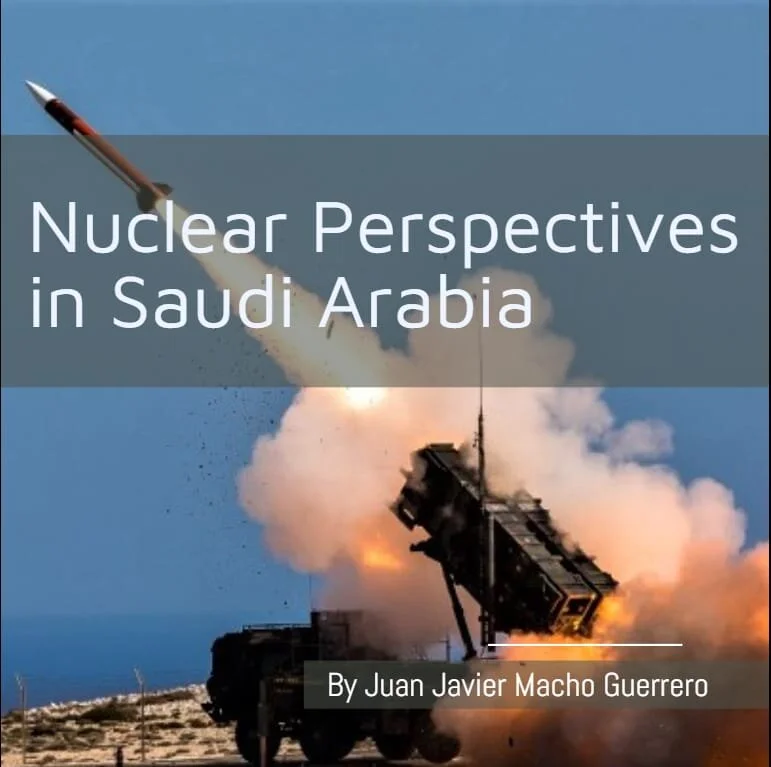India’s development of a ballistic missile system is threatening the credibility of Pakistan’s nuclear deterrent. To regain its credibility, Pakistan is improving its nuclear arsenal, quantitatively and qualitatively, which might lead to an arms race. Additionally, a more developed Indian BMD system would incentivise both India and Pakistan to conduct a nuclear first strike during a conflict.
Observers of the 2023 TPNW Meeting - Why Should We Care?
This article explores the importance of observing states attending the Second Meeting of the States Parties to the Treaty on the Prohibition of Nuclear Weapons (TPNW) in November 2023. It focuses on Germany, the Netherlands, and Australia to argue how the TPNW discussions can foster the nuclear disarmament discourse in countries concerned with nuclear deterrence. It advocates for the state parties to promote the humanitarian approach and the relationship between the TPNW and NATO to bring observers closer to the Treaty’s disarmament goals.
Myanmar’s Crisis: Deciphering Stakeholders and the Probability of Dialogue
Myanmar's Juntas celebrated the 8th anniversary of signing the Nationwide Ceasefire Agreement (NCA) in the country's capital, Nay Pyi Daw, on October 15. However, this anniversary occurred against the backdrop of the February 2021 military coup, which cast doubt on the validity of the NCA, sparked armed conflict in minority ethnic areas, and expanded conflict theatres into Burman-dominated regions. The military's repressive actions against pro-democracy individuals and organisations have fueled armed resistance movements nationwide. Simultaneously, international initiatives to mediate dialogue remain elusive. This article attempts to decipher the complex and dynamic web of stakeholders and assess the existing efforts for dialogue.
War in Sudan (I): Two Warring Generals and a Derailed Democratic Transition
The first part of the series “War in Sudan” looks at the outbreak of the military conflict that began on April 15, 2023, and its main causes. With this aim, it analyses the two main warring factions, their leaderships, and capabilities as well as the troubled democratic transition still trying to succeed since 2019. Precisely, the role of the military in Sudan’s political, economic, and social affairs is key in this analysis.
One year of Russia’s full-scale war against Ukraine: How the country has changed
On the 24th of February, the first anniversary of Russia’s invasion of Ukraine is marked. The war has awakened the Ukrainian nation more assertively than it was after the start of Russian aggression in 2014. The Ukrainian Army is actively upgrading, taking advantage of NATO’s ammunition provision and training support. The country continues undertaking overdue reforms, particularly addressing corruption. Finally, Ukraine revives its national identity, uniting people from all over the country and resisting the enemy. This article analyses the main changes that have taken place in Ukraine since its Russia’s full-scale invasion.
Russian Inroads in Africa: Responsible Power Projection or Regional Instability Preservation
The African continent has never received significant political attention from Russia’s government, Russian economic investments, or tight trade ties. The peculiarity of Russian-African relations is the specific role of private but indeed state-connected military actors in ensuring Russian presence on the continent. One of the illustrative examples of such a presence is the activity of Prigozhin’s “Company” network, which includes the military organization called “Wagner group”.
Nuclear Perspectives in Saudi Arabia
Riddled with persistent conflicts, bitter rivalries and a plethora of economic, social and political fractures, the Middle East stands today as one of the most convoluted regions of the globe. As such, the international community holds a great interest in promoting effective policies to avoid the proliferation of weapons of mass destruction. The tensions coming from Iran's nuclear program have been for long a top priority in this area, but other regional actors should not be overlooked, as they may play an important role in the near future’s nuclear dynamics. This is the case of the Kingdom of Saudi Arabia, whose perspectives on nuclear technology, both for civil and military uses, will be explored in this article.
Market for Force: The Emerging Role of Private Military and Security Companies in Non-Traditional Fields
Previous articles in this series have shed light on the evolution of Private Military and Security Companies (PMSC). Growing beyond the commonly held conceptions in academia and of the industry itself, PMSCs are involved in conflicts around the world. Used by both states and non-state actors, these companies are also branching out into other demographics and types of security. These include intelligence gathering and analysis as well as cyberspace, domains that are typically the preserve of states. The cyber realm has not only been populated by a number of private cybersecurity firms but also hackers-for-hire willing to strike anyone anywhere. Additionally, this article will briefly explore the emerging opportunities for PMCSs in Latin America and China.
Market for Force: The Emerging Role of Private Military and Security Companies in Contemporary Conflicts
Public perception of Private Military and Security Companies (PMSCs), or more colloquially mercenaries, is skewed and heavily influenced by pop culture [1]. PMSCs are not cowboys protecting a town from crime any more than they are the desperados terrorizing and extorting it. Rather, today, they are corporate entities acting on behalf of a state or another non-state actor (often NGOs or private corporations). The 21st century PMSC is more often involved in logistics, support and training than in actual combat. The combat that they do partake in is typically isolated or a defensive detail
Market for Force: The Emerging Role of Private Military and Security Companies in Anti-Piracy Operations
This article will consider private military and security companies (further referred to as PMSCs) as violent, non-state actors and as a threat to existing theories of the state system. This article uses the case study of PMSCs used to protect private vessels travelling through the Indian Ocean and the Gulf of Aden against piracy. It describes the way that PMSCs became involved in this sector and how they continue to stifle piracy, in accordance with state-centred efforts..
Market for Force: The Emerging Role of Private Military and Security Companies
Today, Private Military and Security Companies (PMSC) represent a growing and neglected topic in international security. Currently, various forms of PMSCs are known to be active in Yemen, Libya, Syria, Belarus, Afghanistan, and Ukraine, and were also instrumental in the recent Nagorno-Karabakh conflict. Furthermore, PMSCs are active in non-traditional roles such as the Cartel Wars in Mexico, the Gulf of Aden protecting freighters from Somali pirates, and, beyond these more obvious examples, PMSCs have taken on support roles for standing militaries.
Hypersonic Weapons: Challenging the Hype
A prevailing orthodoxy is recently emerging around hypersonic weapons. It is one characterised by eminent and imminent threat. This impression is largely misguided and misleading and should be challenged. Hypersonic weapons are an awesome military power that threatens to totally upend the conduct and course of modern warfare. A prevailing orthodoxy is recently emerging around hypersonic weapons. It is one characterised by eminent and imminent threat.













